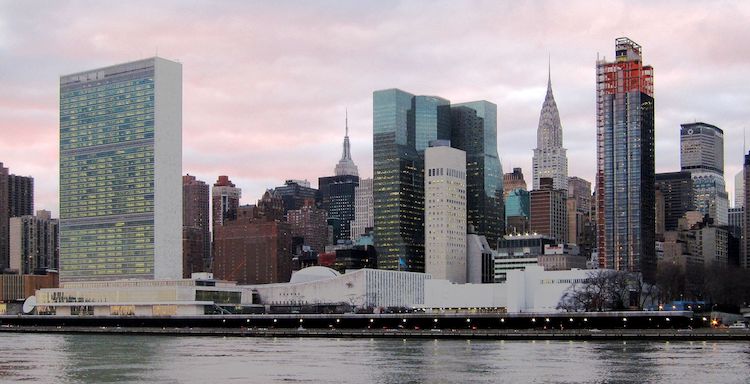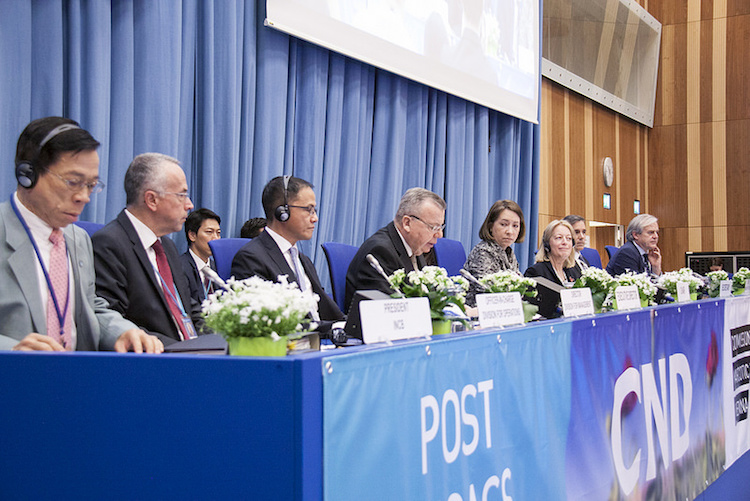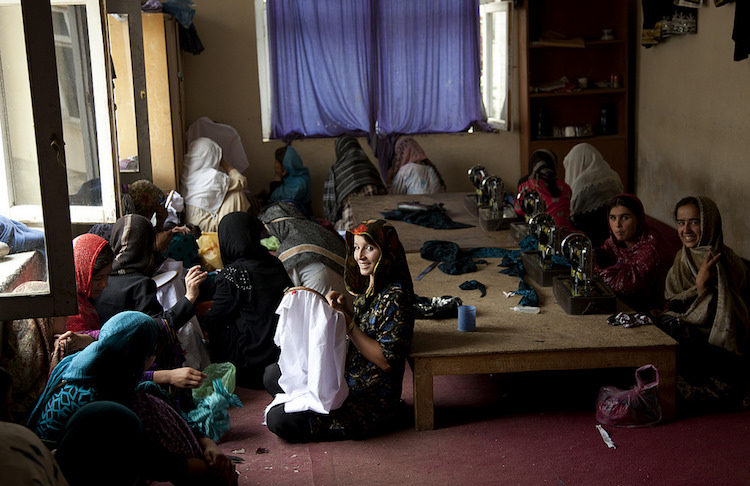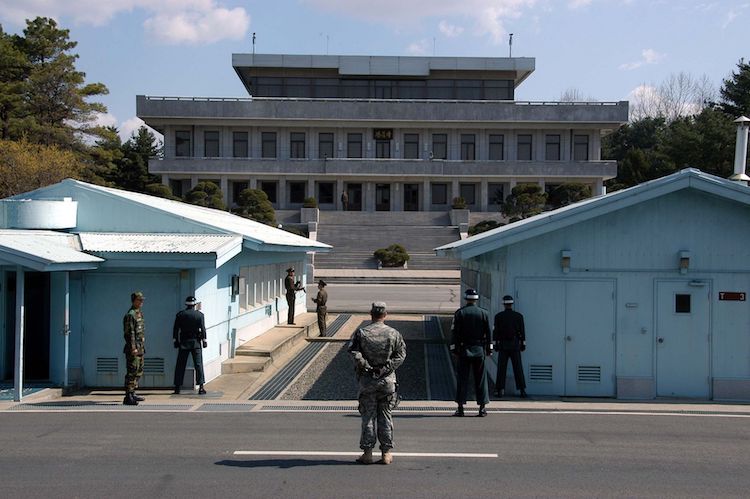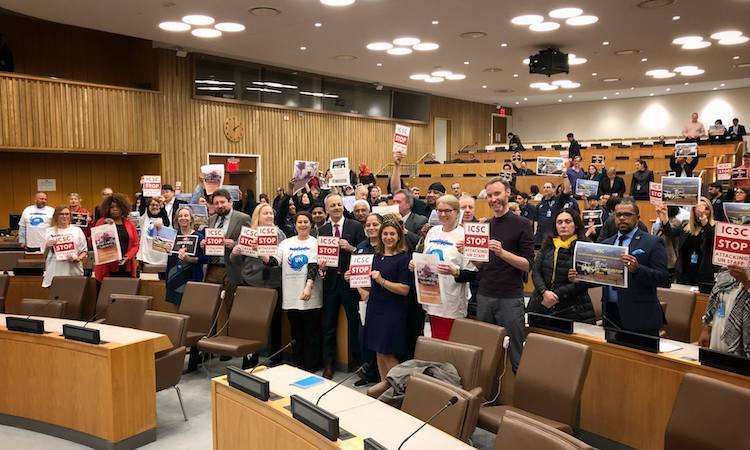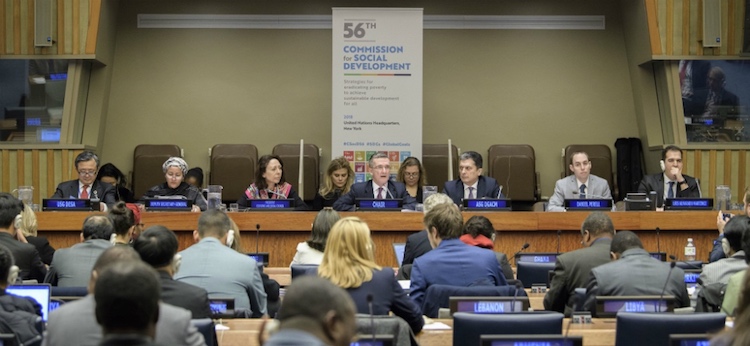By J Nastranis UNITED NATIONS (IDN) – UN Secretary-General António Guterres’ proposal that high-ranking officials fly business class rather than first class – to help rein in one of the most expensive aspects of the Organization’s budget – is finding support in the Administrative and Budgetary Committee, also known as the Fifth Committee. Next to […]
UN Achieves Consensus on Addressing the Drug Menace
By Jaya Ramachandran VIENNA (IDN) – Enhancing international cooperation to combat the synthetic opioid crisis, removing stigma as a barrier to the availability and delivery of health care and social services for people who use drugs is part of eleven resolutions the 61st session of the Commission on Narcotic Drugs (CND) has endorsed. The five-day […]
UN Pushes for Gender Equality in War-Torn Afghanistan
By Devinder Kumar NEW DELHI | KABUL (IDN) – The UN Assistance Mission in Afghanistan (UNAMA) has documented that, in 2017, 359 women were killed – five per cent more than in the previous year – and 865 injured. Altogether about 10,000 civilians lost their lives or suffered injuries in 2017. It is against this […]
UN, EU, Experts Hail Outcome of Inter-Korean Talks, Call For Availing of Peace Opportunities
By Ramesh Jaura BERLIN (IDN) – The United Nations and the European Union as well as independent arms control experts have welcomed the results of latest talks between South and North Korea, and called for seizing the opportunities opening up for peace in the region and for reducing international tensions. The significance of emerging prospects […]
UN at Pains to Weed Out Sexual Exploitation and Abuse
By Santo D. Banerjee NEW YORK (IDN) – At a critical moment when allegations of sexual exploitation and abuse from within the United Nations are mounting, and a leaked UN staff survey shows fears over whistleblowing and ethical accountability, Secretary-General António Guterres has in his message for International Women’s Day on March 8, called for […]
Staff Unions Threaten UN-Wide Work Stoppages Over Pay Cuts
By Shanta Roy GENEVA (IDN) – A proposed salary cut – resulting from an “austerity agenda” – has triggered temporary work stoppages in UN offices in Geneva, Bangkok and Addis Ababa and is threatening to spread system-wide, including field operations. The protest is led by three staff unions – the Coordinating Committee of International Staff […]
Switzerland Joins Sustainable Development Solutions Network
By Jaya Ramachandran BERN (IDN) – The global Sustainable Development Solutions Network (SDSN) has launched its 25th network, SDSN Switzerland, co-hosted by the Centre for Development and Environment at the University of Bern and BIOVISION Foundation, foundation for ecological development, with a view to shaping multi-stakeholder dialogue, fostering sustainable development solutions, and advising decision-makers on […]
UNESCAP, Islamic Development Bank Sign Landmark Agreement
By Santo D. Banerjee NEW YORK (IDN) – One of the world’s largest multilateral development banks, the Islamic Development Bank (IsDB), has launched ‘Engage‘, a new digital platform which will promote technological and scientific solutions to accelerate progress towards the Sustainable Development Goals (SDGs). IsDB President Dr. Bandar Hajjar announced on February 21 the launch […]
Social Development Commission Stresses Global Goals
By J Nastranis NEW YORK (IDN) – While progress has been achieved in realizing Sustainable Development Goals (SDGs), adopted by the United Nations in September 2015, Deputy Secretary-General Amina Mohammed has warned that “the drop in extreme poverty remains uneven across regions, within countries and between various social groups.” Addressing the opening of the fifty-sixth […]
UN Chief Warns of a Repeat of the League of Nations’ Fate
By Ramesh Jaura BERLIN | MUNICH (IDN) – UN Secretary-General António Guterres has warned against a repeat of what happened with the League of Nations and the threat of a nuclear conflict, stressed the need for breaking the Gordian knot in the “broader Middle East”, called for establishing an international legal framework for “cyberwars between […]

